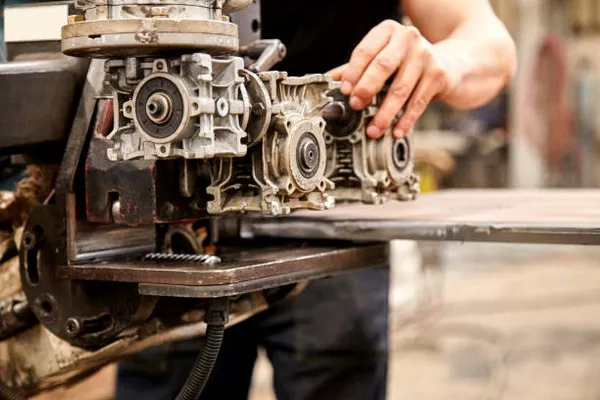Atlas Copco has reported significant enhancements in production efficiency and cost savings following its integration of EOS’s polymer-based additive manufacturing (AM) technology. The Swedish multinational, renowned for its innovations across various sectors including automotive, has leveraged EOS’s solutions to streamline its operations.
By adopting in-house AM with EOS technology, Atlas Copco has successfully reduced production costs by 30% and lead times by an impressive 92%. This shift has enabled the company to bring component production in-house, effectively shortening the supply chain and mitigating its environmental footprint.
Atlas Copco, a leader in providing advanced technology and solutions to industries such as automotive, embarked on a transformative project 18 months ago. The goal was to capitalize on emerging market opportunities, particularly in the electric vehicle sector, by internalizing 3D printing capabilities.
The transition to AM was driven by Atlas Copco’s need for greater agility and reduced lead times. According to Jason Edwards, Technical Manager at Atlas Copco, “Our objective was to achieve tighter control over manufacturing processes to facilitate shorter lead times, cost reductions, and the ability to quickly prototype new products. Partnering with EOS and Additive Minds has provided us with a comprehensive solution, enabling us to enter serial production with several components, rapidly prototype hundreds more, and achieve a return on investment in just 18 months.”
EOS, alongside its Additive Minds team, played a crucial role in this transition. They provided not only the 3D printing equipment but also comprehensive support, including cost-per-part analysis and data preparation. Their expertise extended to machine recommendations, workflow optimization, powder selection, and post-processing techniques.
The EOS P 396, a mid-sized 3D printer known for its reliability, flexibility, and dimensional accuracy, was selected for its ability to support 14 materials and 26 parameter sets. This, combined with the DyeMansion DM60 coloring solution from the EOS partner network, has enhanced Atlas Copco’s production capabilities, allowing for color coding in products, such as indicating safety equipment on automotive production lines.
The shift to in-house 3D printing has significantly reduced reliance on third-party components, mitigating supply chain constraints and transport delays. Lead times have plummeted from 6-12 weeks to just 3-4 days—a 92% reduction. Additionally, the environmental impact has diminished due to decreased transport requirements, and production schedules are now more controllable, improving agility for urgent orders.
The move to AM has also led to a 30% decrease in production costs. The precision and reliability of the EOS P 396 have minimized waste, slashing it from approximately 7% to near zero, a marked improvement over traditional manufacturing methods.
Atlas Copco has embraced iterative prototyping, accelerating product design and development with newfound freedom. Weekly design meetings facilitate immediate prototyping and testing, exemplified by the simplification of a spool carrier from a complex assembly to a single, cost-effective printed component.
This successful transition underscores the value of collaboration and trust between Atlas Copco and its partners. Nathan Rawlings, Sales Manager at EOS UK, highlighted the importance of strong communication and teamwork in overcoming the challenges of transitioning to AM. “Our project illustrates how crucial it is for companies to have a unified approach when adopting new manufacturing technologies. EOS is committed to supporting organizations in achieving success through dedicated partnership and expertise.”
Edwards reflects on the transformative impact of AM: “The technology has opened new opportunities for us. We’re securing global contracts due to our ability to offer direct supply at lower costs and shorter lead times. EOS has been instrumental in this journey, providing continuous support and expert advice to optimize our use of 3D printing.”
Through this partnership, Atlas Copco has not only enhanced its production efficiency but also strengthened its competitive edge in the global market.


